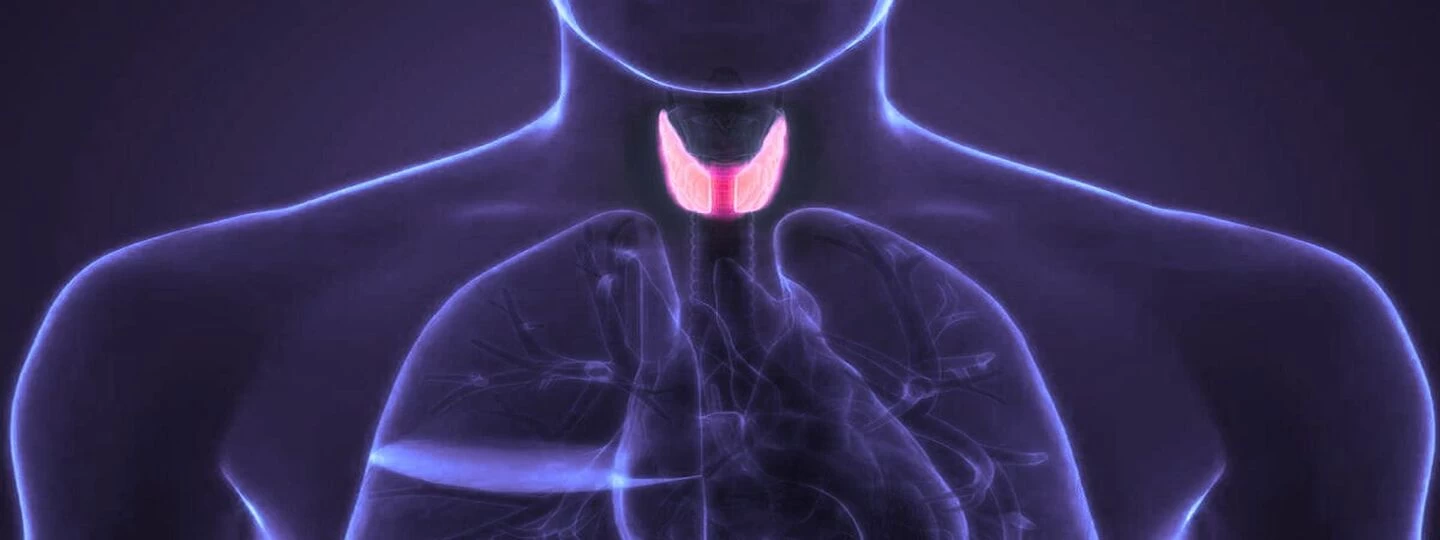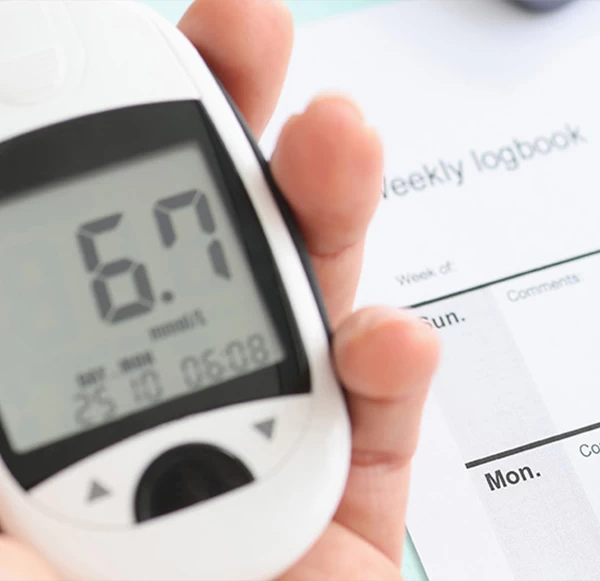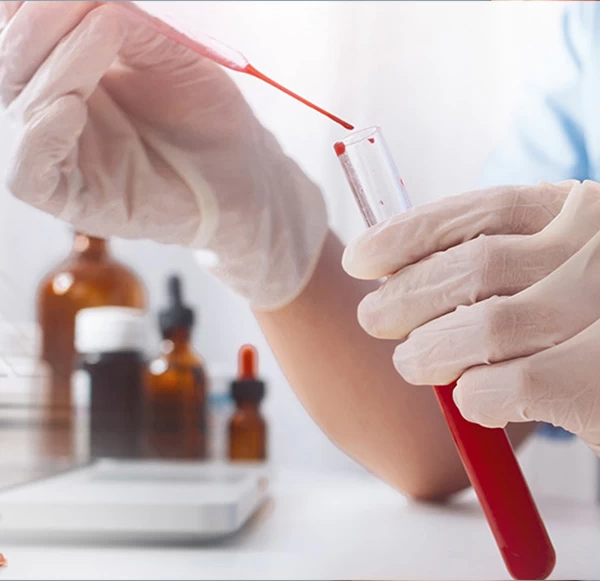- Email Us

Think of the thyroid gland as the fuel injector for your high-performance engine; it ensures that your engine runs smoothly, efficiently, and at a high pace. Though a tiny butterfly-shaped gland sits hidden in your neck, its effects are significant, from regulating your core temperature to controlling your level of mental awareness. Many of us unknowingly run on mismatched fuel—leading to fatigue or constant tiredness, unexplained weight gain or loss, mood swings, anxiety, or depression and much more. In India, more than 42 million people are estimated to have thyroid disorders. The issue lies in the fact that a large number of people remain unaware about their illness. By spotting thyroid issues early and paying close attention to body’s warning signs, one can prevent small imbalances from turning into major health challenges. This blog will discuss the need of early thyroid testing, highlight important symptoms of thyroid and at-risk populations, and show how early involvement can transform lives in the sections that follow.
What Is a
Thyroid Disorder and why does it matters?
Thyroid disease includes a variety
of conditions where the tiny, butterfly-shaped gland at the front of your neck
is unable to generate the right amount of hormones, resulting in a thyroid
hormone imbalance. These hormones are vital chemical messengers
that control temperature, development, metabolism, and many other body
processes. In hypothyroidism, the gland underproduces hormones, which slows
down body functions; in hyperthyroidism, it overproduces hormones, which speeds
them up. Nodules, goitre (enlargement of the gland), and autoimmune-driven
imbalances like Hashimoto's thyroiditis or Graves' disease—conditions where the
body's immune system attacks or overstimulates the thyroid—are examples of
further thyroid
health issues. Regular monitoring of TSH
levels plays a key role in detecting these disorders early.
Here's a glimpse into the thyroid’s key functions:
· Regulating
metabolism: Thyroid hormones regulate metabolism by acting as
the body's thermostat, dictating how rapidly we burn calories and produce
energy.
· Fostering
development and growth: These hormones are important for development and
growth, particularly in childhood and adolescence.
· Influencing
brain function: Thyroid hormones also have an effect on mood
management, cognitive function, and brain growth.
Top
Conditions Linked to Thyroid Disorders:
While thyroid
disorders can affect anyone, certain risk factors silently raise the stakes.
From age and gender to lifestyle and medical history, your risk may be hiding
in plain sight. Understanding these underlying conditions can help in taking
proactive steps toward better thyroid health—as prevention always begins with
awareness.
· Gender based: Thyroid disorders are significantly more
common in women, especially during hormonal changes such as estrogen
fluctuations, menopause, pregnancy, and postpartum.
· Certain age
group: People over 60 Years of Age have an increased risk of thyroid
imbalance, especially hypothyroidism.
· Family history: Thyroid disorders are strongly influenced by genetics; those who have
close relatives with thyroid disorders are more likely to get one themselves.
· Autoimmune
conditions: Due to immune
system involvement, those with conditions including lupus, rheumatoid arthritis, type 1 and type 2 diabetes are more
vulnerable.
· Iodine deficiency
or excess: Thyroid function can be affected by excessive or
insufficient iodine intake, particularly in areas where iodine deficiency is
prevalent in the diet.
· Radiation exposure: Thyroid risk is increased by radiation therapy administered to the neck
or upper chest or by exposure from the environment.
· Medications: Thyroid hormone synthesis or function may be impacted by medications
such as interferon-alpha, amiodarone, or lithium.
Early Signs of thyroid disorders: what to watch for?
Spotting the early signs of thyroid
disorders is essential for timely diagnosis and treatment. Whether it’s an
underactive thyroid (hypothyroidism) or an overactive one (hyperthyroidism),
symptoms often appear gradually and may be mistaken for other conditions. Being
aware of these warning signs can help you take early action to protect your
thyroid health.
Symptoms related to
hyperthyroidism (overactive):
· Weight loss
· Weakness
· Muscle aches
· Anxiousness
· Vomiting
· Tremors
· Hair loss
· Menstrual irregularity
Symptoms related to hypothyroidism (underactive):
· Tiredness
· Cold intolerance
· Eye irritation
· Constipation
· Depression
· Hypotonia (low muscle tone)
· Puffiness and dryness around the eyes
· Menstrual irregularity
Key Diagnostic Tests for Thyroid Health:
Early detection is essential in managing thyroid disorders
effectively—even before symptoms appear. Commonly recommended thyroid function tests like the
highly sensitive TSH blood test and vital thyroid hormone tests (T3 and
T4) play a critical role in diagnosis, treatment, and long-term management.
Below are the most commonly used tests to evaluate your thyroid health:
TSH (Thyroid-Stimulating Hormone):
The thyroid-stimulating hormone level in your blood
is determined by the TSH test. The pituitary
gland produces TSH, which serves as a messenger by informing your thyroid when
to release hormones (T3 and T4). A high TSH typically indicates hypothyroidism,
or an underactive thyroid. Hyperthyroidism, or an overactive thyroid, may be indicated
by low TSH. When it comes to screening for thyroid problems, this is frequently
the first and most sensitive test.
TSH
Ultrasensitive test- 3rd Generation:
A more sophisticated variant of the conventional TSH test is the TSH
Ultrasensitive (3rd Generation) test. It is perfect for identifying early or
subtle thyroid abnormalities because of its remarkable precision in detecting
even very low levels of TSH. It is essential for identifying thyroid conditions
that may not yet exhibit symptoms, known as subclinical thyroid illness. It is
particularly crucial for routine health examinations in at-risk persons and for
the monitoring of thyroid patients.
T3 test (Triiodothyronine):
The thyroid produces two primary hormones, one of which is T3. It is
involved in numerous metabolic processes and regulates how your body uses
energy. Both free and bound T3 in your blood are measured by a Total T3
test. The active form is especially examined in a Free T3
test. While low T3 may represent hypothyroidism or thyroid suppression
brought on by sickness, high T3 may indicate hyperthyroidism.
T4 test (Thyroxine):
The most prevalent thyroid hormone, T4, plays a crucial role in energy
control and metabolism. Similar to T3, it is available as Free T4 (just
active hormone) and Total T4 (both
bound and free). The measurement of free T4 is especially helpful in assessing
the health of your thyroid. When TSH levels are out of range, abnormal T4
levels aid in diagnosis confirmation.
When it comes
to precision and convenience, Mahajan Imaging & Labs stands out as the preferred
choice for thyroid diagnostics. With state-of-the-art equipment and highly
trained technicians, Mahajan Imaging & Labs ensures accurate and timely
results. Patients can easily book appointments through the website, via WhatsApp at +91
88828 97661,
or by calling the customer care number at +91 11 4118 3838. For added convenience, home
sample collection services are available across Delhi-
NCR, along with multiple fully equipped diagnostic centers in
the region. Whether you're seeking routine screening or managing a known
condition, Mahajan
Imaging & Labs provides trusted, patient-centred care every
step of the way.
Final thoughts:
Though often unnoticed, thyroid diseases have an impact on every aspect
of your life. Your best ally is early detection, and the TSH ultrasensitive 3rd
generation test, in addition to T3 and T4 assays, provides unparalleled
precision. Mahajan Imaging & Labs offers precise
and reliable results to help you take control of your health. Convenient home sample collection,
multiple Delhi NCR centers,
and easy booking via website, WhatsApp, or
phone make testing hassle-free.
Take control of your thyroid health-schedule your test with
Mahajan Imaging & Labs today.
Frequently
Asked Questions:
Q. Can thyroid
disorders be cured?
Ans. While certain
conditions, like hypothyroidism, require lifetime medication, others can be
addressed permanently.
Q. Do thyroid
disorders affect concentration and memory?
Ans. Certainly, untreated thyroid conditions can cause
brain fog, which is a term used to describe difficulties focusing and
remembering things.
Q. Can thyroid affect pregnancy?
Ans. Indeed, untreated
thyroid issues can raise difficulties to the new born, cause preterm birth or
miscarriage. Getting checked for thyroid is highly recommended before
pregnancy.
Q. How does family history affect the risk of thyroid disease?
Ans. An
individual is more likely to develop thyroid disease if there is a family
history of the condition.
Q. How can
thyroid disease be prevented?
Ans. Thyroid health can be maintained by routine check-ups, a nutritious
diet, and avoiding excessive iodine intake, even if not all thyroid problems
can be prevented.




